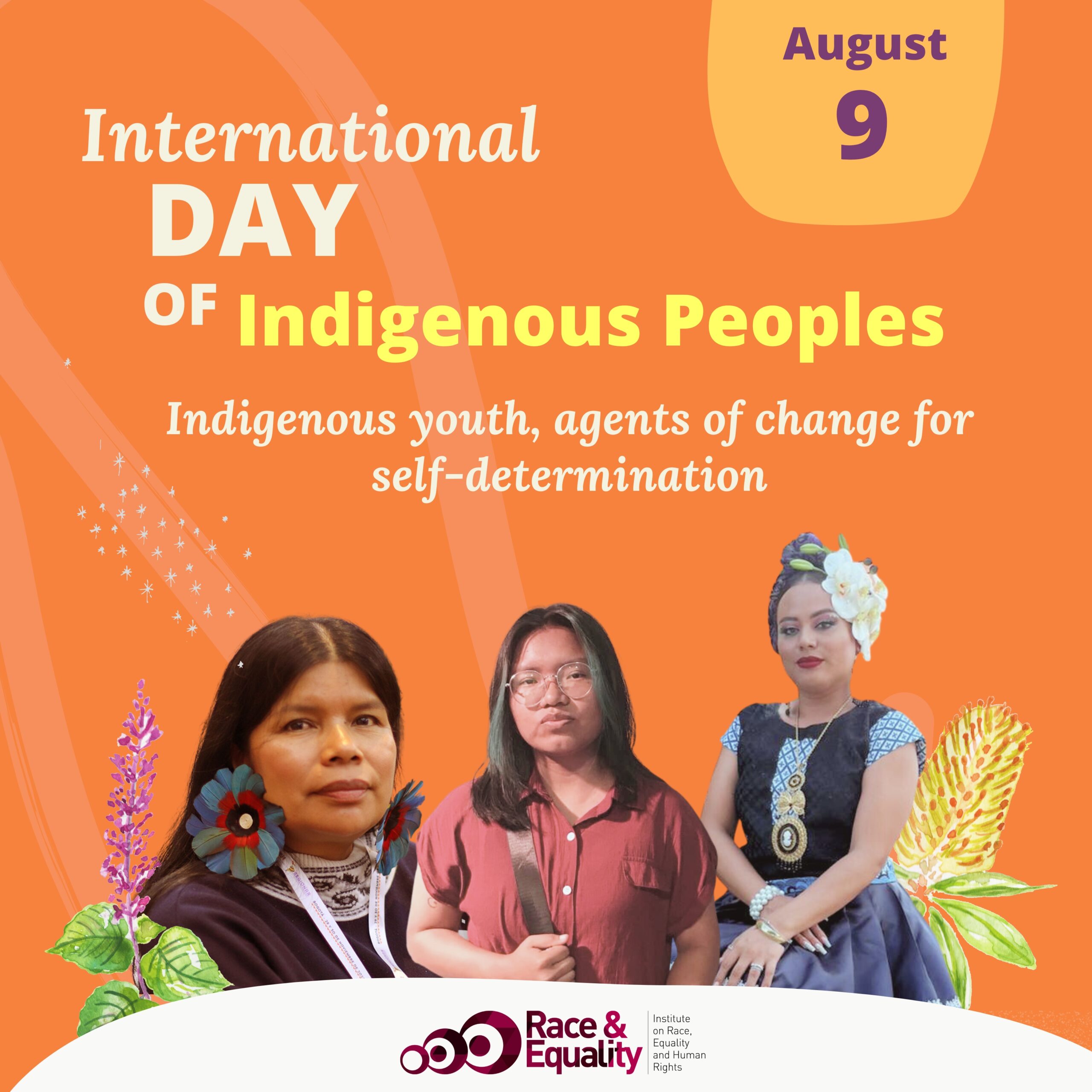Race and Equality Recognizes the Role of the Indigenous Youth of Latin America and the Caribbean As Agents of Change for Self-determination
Washington D.C., 9 August 2023.- In Latin America and the Caribbean there is a context of generalized violence in which significant challenges persist for the recognition and full achievement of […]

Washington D.C., 9 August 2023.- In Latin America and the Caribbean there is a context of generalized violence in which significant challenges persist for the recognition and full achievement of self-determination and other connected rights. In the face of this, indigenous youth, aware of their role as agents of change, push for enforcement processes and advocacy for the defense of human rights, the promotion of justice, and accountability.
On this International Day of the World’s Indigenous Peoples, the Institute on Race, Equality and Human Rights (Race and Equality) joins the call by the United Nations under the motto “Indigenous youth, agents of change for self-determination,” that recognizes the strengths but also the challenges that indigenous youth of the region face in the preservation of their land, territories, sacred places, and the revitalization of their traditions and manifestations of identity.
Context
It is estimated that in Latin America and the Caribbean there are approximately 58 million people belonging to 800 indigenous peoples, representing 9.8% of the regional population. In various states across the region there are important gaps in the fulfillment of normative frameworks and favorable policies for the rights of these peoples, as well as international and inter-American standards on the rights of indigenous and tribal peoples.
The situation of violence that indigenous peoples face is rooted in the presence and invasion of their lands by non-indigenous third parties, whether that is people involved in logging, mining, live-stock, or narco-trafficking activities; and situations of armed conflict, that in their aftermath have great risks and threaten the physical and cultural survival of said peoples. At the same time, criminalization, stigmatization, and threats against indigenous peoples, including assassinations, continue.
Indigenous Youth, Agents of Change for the Present and Future
For several decades, the Latin American indigenous movement has recognized the development of its own youth movement, which is articulated regionally and constructs specific actions for the fulfillment of their demands, among which is the recognition of their diversities.
Indigenous youth have a characteristic opening for intersectional dialogue in their communities, that can be credited to the vitality of their identities and commitment made with the legacy of their ancestors and the strengthening of advocacy strategies before human rights protection organs, such as the United Nations Permanent Forum on Indigenous Issues. However, they also face challenges such as ageism, unemployment, gender-based discrimination, threats, among others.
For Thaís Diakarapó, leader of the Brazilian Dessana people and Coordinator of the Department of Indigenous Adolescents and Youth of the Makira E’ta Network, the primordial challenge for indigenous youth is “to redefine that the youth are not only the future, but also that we are agents of transformation for the present, of now, and we have the capacity to lead and to be at the forefront of our struggles with the desire to realize our demands.”
Diakarapó recognizes that the work of the youth “is developing every day and forming leaders within the networks of action;” however their current demands, discussions, and debates are being made only from indigenous youth to indigenous youth, and it is of great importance that these dialogues are also intergenerational, with authorities and other more powerful agents in the implementation of transformational policies.
On the other hand, from the Muxhe community, in the Istmo de Tehuantepec, Oaxaca, Mexico, the trans activist Dayanna Gallegos Castillejos, considers acts of ethnic discrimination, particularly when it comes to indigenous gender identities, as the biggest challenges that indigenous youth face.
“Indigenous youth must be visible… We need to be part of the global agenda for strengthening the struggle for our indigenous identities,” she added.
From Race and Equality, we reaffirm our commitment to the protection and promotion of indigenous peoples’ rights. We recognize the fundamental role of indigenous youth that raise their voices looking for justice for their peoples and create intergenerational connections to keep their cultures and traditions alive, without external interference.
We call upon states to implement laws and policies that guarantee the right to self-determination, autonomy, and free prior and informed consent; and that combat structural problems, historic inequalities, and discrimination and racism, that pose risks to the social wellbeing of indigenous peoples.

